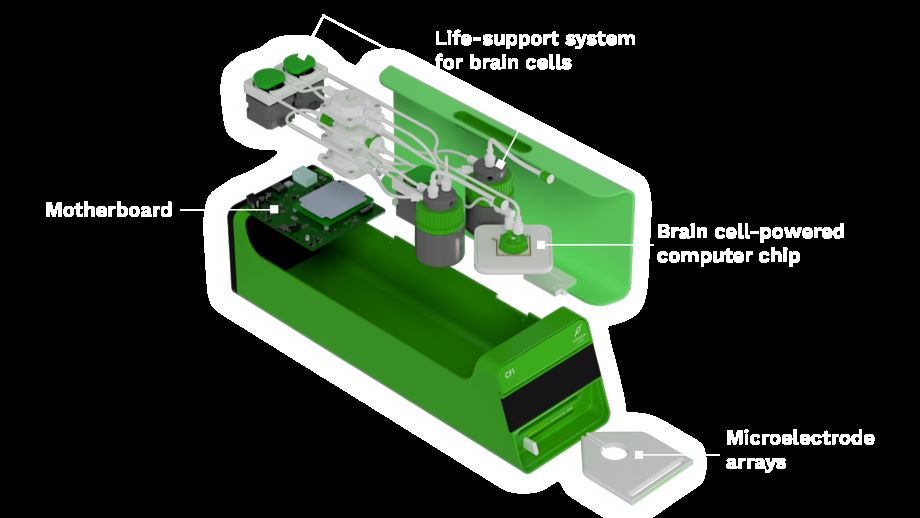[video] Australian startup prepares to sell “world’s first” biological computer
Australian startup Cortical Labs has begun marketing what it claims is the "world’s first" commercial biological computer, named CL1. This innovative technology combines real neurons grown from human stem cells with silicon to create a new type of artificial intelligence (AI) called Synthetic Biological Intelligence (SBI).
The goal – the company says on its website - is to develop a more advanced and sustainable form of AI.

Cortical Labs cultivates the needed neurons in a nutrient-rich solution to keep them healthy. They further grow on a silicon chip that can send and receive electrical signals, allowing them to interact.
These neurons are incorporated into Cortical Labs' Biological Intelligence Operating System (biOS), which can run simulations. The system communicates with the neurons about what is happening around them. As the neurons respond, their electric signals influence their simulated environment.
The computer can directly use code to program the real neurons, which the company states are “self-programming” and highly adaptable, evolved over four billion years. The CL1 has a built-in life support system that can keep the neurons alive for up to six months.
More to read:
Germany’s cyber agency is funding development of world’s first mobile quantum computer
It is not clear what happens after six months; either the dead neurons are replaced with fresh, lab-grown one to continue operating the CL1, or users maintain a process of cultivating and preparing new neurons in advance.
Founder and CEO of the Melbourne-based firm, Hon Weng Chong assures that specialized labs will be able to purchase units to grow their own cells.
Cortical Labs claims the CL1 requires very little energy compared to traditional technologies, extending the duration of research. Additionally, the device is cruelty-free, as it does not involve animal testing, providing more relevant information based on human biology.
More to read:
Anthropic’s latest AI model can control users’ computers
The CL1 is expected to be available in the second half of 2025.
Each unit is projected to cost around $35,000 and will use between 850 to 1,000 watts of energy, operating independently without needing an external computer. In the coming months, the company aims to launch a biological neural network server that will host 30 individual units, with the goal of having four server stacks available for commercial use via the cloud by the end of 2025.
The CL1 is an upgraded version of a previous biological computer by Cortical Labs, originally known as DishBrain, which had 800,000 neurons and learned to play the game Pong.
To date, the company has raised $11 million in funding from investors, including Horizons Ventures, Blackbird Ventures, LifeX Ventures, Radar Ventures, and the CIA's venture arm, In-Q-Tel.
***
NewsCafe is an independent outlet. Our sources of income amount to ads and subscriptions. You can support us via PayPal: office[at]rudeana.com or https://paypal.me/newscafeeu, or https://buymeacoffee.com/newscafe - any amount is welcome. You may also want to like or share our story, that would help us too.




![[video] Defense startup deploys “laser” shield that neutralizes drones in seconds](/news_img/2025/03/28/news0_mediu.jpg)
![[video] Former commander of Ukrainian armed forces ridicules NATO’s Article 5](/news_img/2025/03/26/news1_mediu.jpg)

